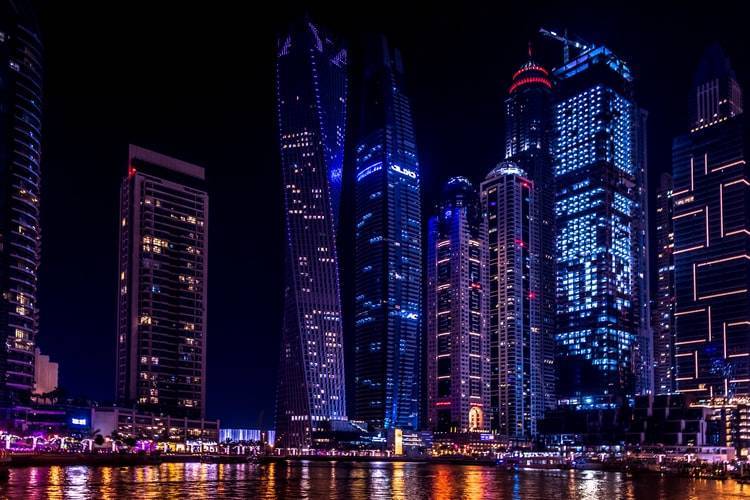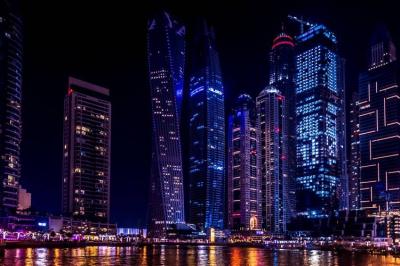Foreign direct investments (FDI) flowing into the United Arab Emirates (UAE) grew by 44.2% in 2020 compared to 2019, reaching $19.88 billion despite the repercussions of the COVID-19 pandemic, which affected investment, trade, and global economies. The cumulative balance of incoming FDI reached approximately $174 billion, reflecting a growth of 12.9% during the same period. These investments spanned all sectors and economic activities, with a focus on oil and gas sectors, where the Abu Dhabi National Oil Company (ADNOC) entered into major investment deals and partnerships with several foreign companies contributing to this growth. The investments also targeted sectors supporting modern technologies essential for the digital economy, such as artificial intelligence, the Internet of Things, blockchain, innovative medical technologies, high-speed transportation, augmented reality, robotics, self-driving cars, renewable energy, innovation, technology, agriculture, and more.
On the other hand, UAE's outbound investments to the world in 2020 reached about $9.2 billion, demonstrating high efficiency in regional and international markets across various vital economic sectors. These strategic quality investments are characterized by sustainability, enabling UAE companies to enhance the competitiveness of the national economy in advanced global industries and services like aviation, air transport services, mining, and significantly advancing in renewable energy, along with real estate, construction, information and communication technology, oil and natural gas, conventional energy, logistics, ports, infrastructure, tourism, hospitality, entertainment, aviation, banking, and agriculture.
Economy Minister Abdullah bin Touq Al Marri stated, "The investment and economic scene in the UAE has successfully achieved a prominent global ranking, along with regional leadership, thanks to the wise leadership's directives. The nation has continued to advance in global indicators related to FDI flows and ease of doing business. Once again, the figures for FDI inflows to the state last year confirm the validity of the governmental approach, policies, and steps being taken to enhance the flexibility and attractiveness of the business environment through an integrated system of policies and procedures, which focus on continuous modernization of legislative and regulatory frameworks and ongoing launch of government support initiatives aimed at improving performance across different sectors, stimulating the national economy, and accelerating its recovery and revival.”
He emphasized that the UAE's advancement in attracting foreign investments reflects a positive outlook and confidence among investors, based on strong governmental commitment to economic diversification, innovation, infrastructure development, and ease of doing business. This is further evidence of the strength and resilience of the nation's economy and its ability to overcome the challenges currently permeating the global economic landscape and efficiently respond to emergencies and crises.
State Minister for Foreign Trade Thani bin Ahmed Al Zeyoudi mentioned, "The position of the UAE in global FDI attraction indicators is not coincidental; it is the result of a clear vision adopted by our wise leadership to reinforce the UAE's status as a global investment destination. This is reflected in the state's policies for developing FDI, as the nation strives to formulate strategies that enhance its leadership in attracting quality investments that support development plans based on innovation, knowledge, technology, and the digital economy, in accordance with the national agenda 2021 and the UAE Centennial 2071."
He pointed out that the growth achieved by the UAE in attracting FDI reflects the international community's confidence in its investment environment and confirms the solid course of the state's open trade and investment policies. The UAE has more opportunities to attract investments, especially given the recent amendments to the Commercial Companies Law, which are expected to have a significant long-term impact on the inflow and quality of both foreign and domestic investments, as well as on the overall economic growth process in various dimensions within the state.
With respect to the sectors in which the incoming direct FDI is distributed as of early 2020, wholesale and retail trade along with vehicle and motorcycle repair ranked first, followed by real estate activities in second place. Financial activities and insurance came in third, mining and quarrying in fourth, followed by manufacturing in fifth. This was succeeded by the construction sector, then professional, scientific, and technical activities, followed by electricity, gas, steam, and air-conditioning supply, transportation, and storage, and finally, information and communication.
It’s noteworthy that the UAE ranked first in the Arab world and regionally and fifteenth globally in the Kearney FDI Confidence Index for 2021, advancing four positions compared to 2020, thus outperforming several major global economies in the index's overall ranking, including Singapore, Australia, Portugal, Denmark, Ireland, Brazil, and Finland. The UAE improved its global ranking for FDI attraction by three positions from where it stood in 2018, ranking 24th globally in 2019. Furthermore, the UAE maintained its position as the first within the West Asia region in attracting FDI, accounting for 49.4% of the total FDI inflows into West Asian countries in 2019, while keeping its 19th place globally for outbound FDI based on UNCTAD's Global Investment Report 2020.
As of early 2020, the distribution of incoming FDI to the UAE by continent, according to relative significance, was as follows: Asia, followed by Europe, then North America, and finally Africa. As for contributing countries, the United Kingdom and Northern Ireland ranked first, followed by India, China, the British Virgin Islands, Saudi Arabia in fifth, Switzerland, France, the Netherlands, the United States, and Japan.
It is reported that the United Nations Conference on Trade and Development (UNCTAD) estimated a 42% decrease in global FDI flows in 2020, and the West Asia region experienced a 24% decline due to the COVID-19 pandemic and full and partial lockdowns in various countries. However, the UAE successfully defied this downturn and achieved notable growth in FDI amidst the global economic uncertainty, showcasing the country's proactive measures in handling the global pandemic and minimizing its impacts, as the UAE recorded the highest vaccination rates globally.




